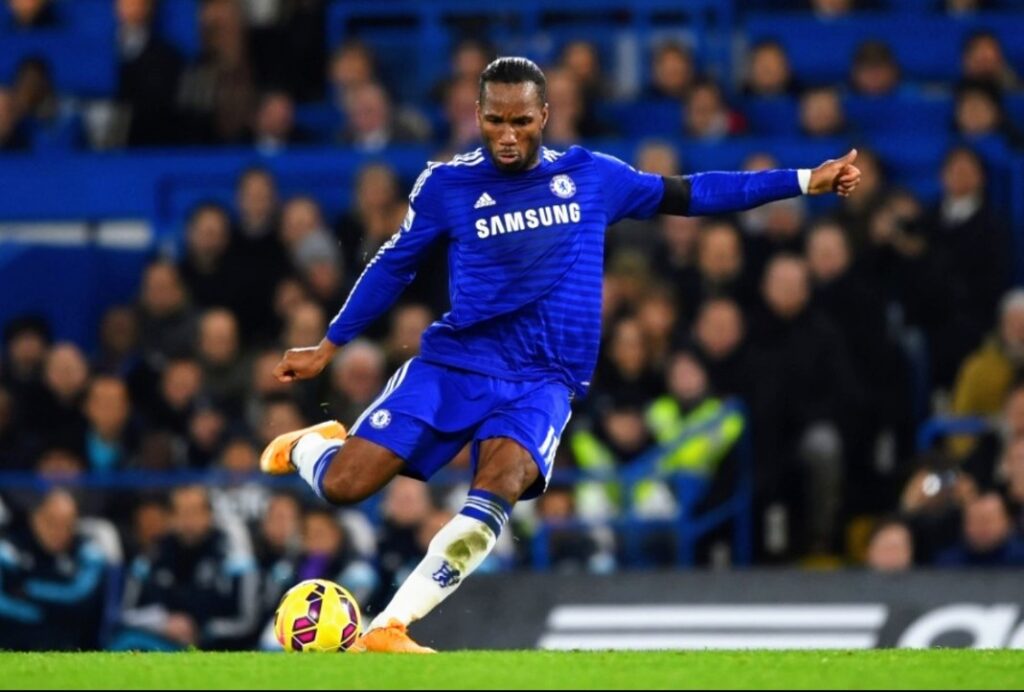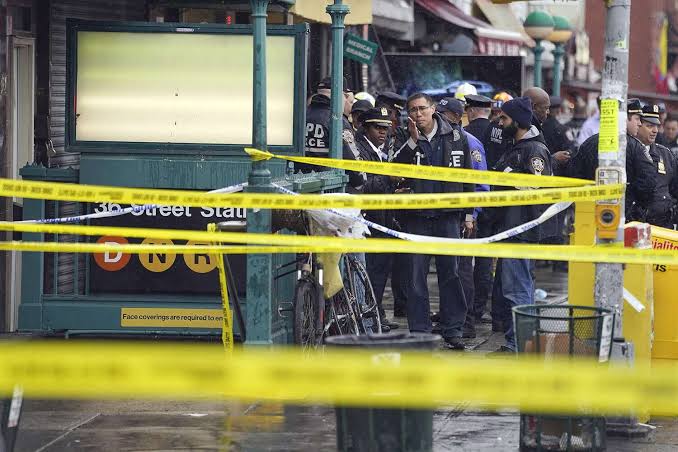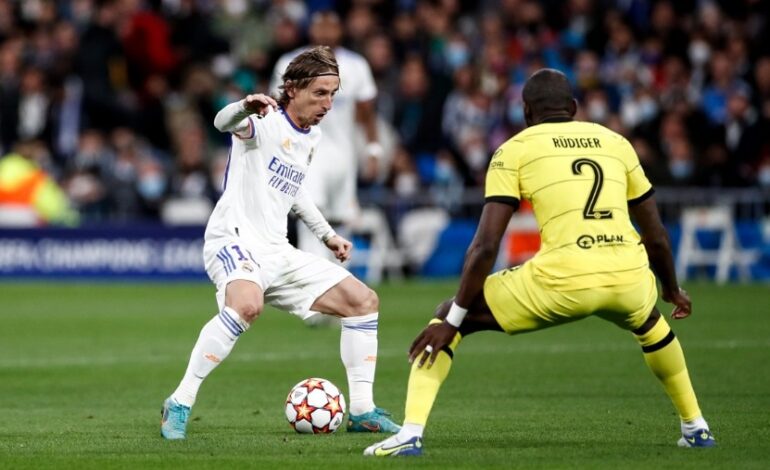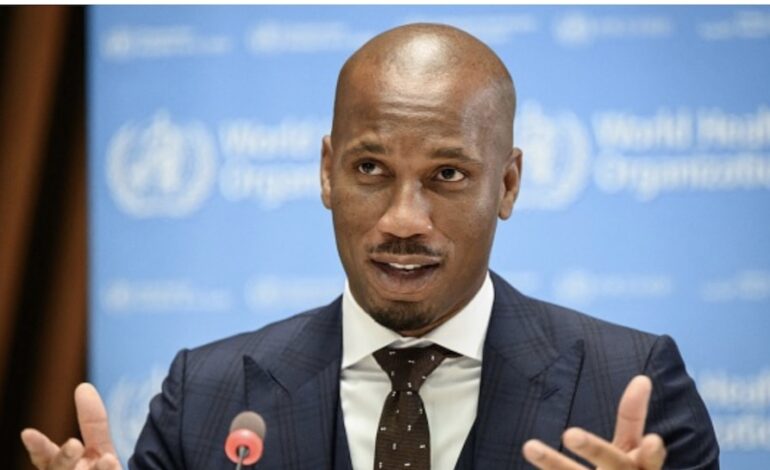
Wayne Lumbasi
Didier Drogba was born on March 11, 1978, in Abidjan, Ivory Coast.
After immigrating to France at an early age, he became a star soccer player in his adopted country and later led the world-famous Chelsea club to multiple championships.
An immensely popular figure in Africa, Drogba has captained the Ivory Coast national team and earned acclaim for his humanitarian efforts. He is renowned for his heading ability, sharp shooting and sheer strength.
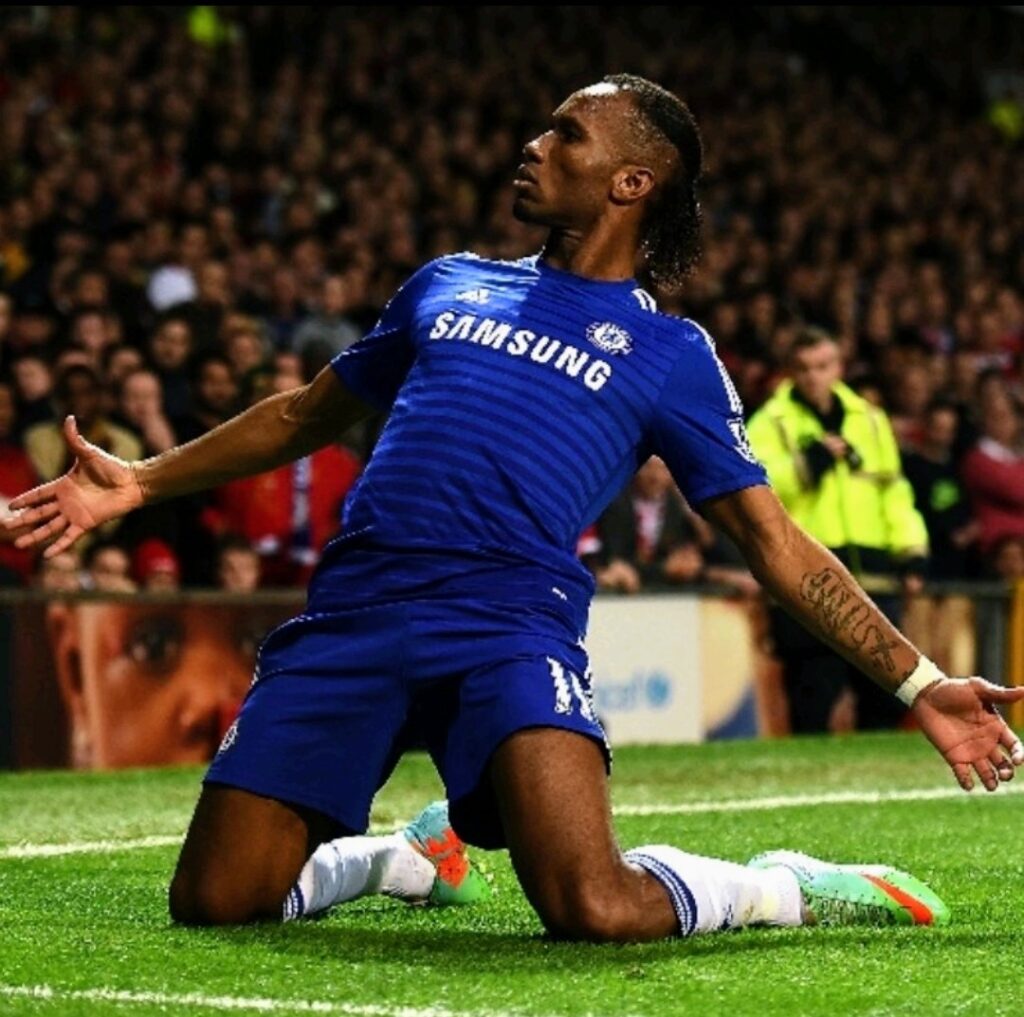
Drogba made his professional debut at Le Mans. He played there for a few seasons before heading to Guingamp. At the end of the 2002-03 season, he moved to Olympique de Marseille, and with 19 goals, Drogba finished as the third-highest scorer, helping the club reach the 2004 UEFA Cup Final.
His power, aerial ability and his strength on the ball endeared him to fans. His clutch play made him a legend. That legendary status was achieved when he made the move to Chelsea, who signed him for a £24 million fee, becoming the most expensive Ivorian player in history.
Drogba’s performance was uneven in his first two seasons of Premier League play, and he drew heavy criticism for “diving,” the act of falling down after contact in hopes of drawing a foul, and for his outbursts at referees.
But the powerful striker finally appeared comfortable in his third season, scoring 33 goals to win the Premier League Golden Boot.
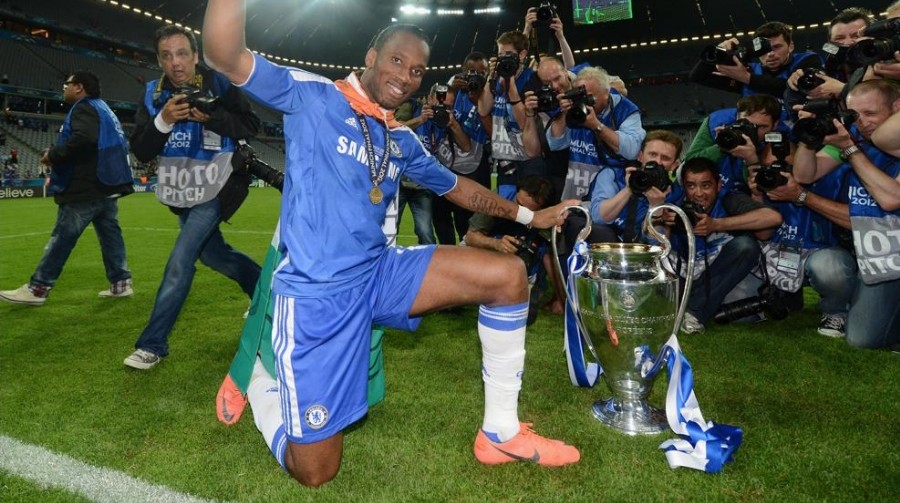
He then won the major trophies one after the other with this Chelsea team. Four times champion of England, four times winner of the FA Cup, three times winner of the Community Shield, two times top scorer in the English league.
In 2012 he won the much-prized Champion’s League trophy and left Chelsea being voted player of the century by club supporters, top African scorer in the Champion’s League and top African scorer in the English Premier League (record recently broken by Mohamed Salah with Liverpool).
Didier Drogba, with 157 goals in eight seasons, including 34 in the Champions League, is the fourth top scorer in Chelsea’s history and he was twice the top scorer in the English league (2007 and 2010).
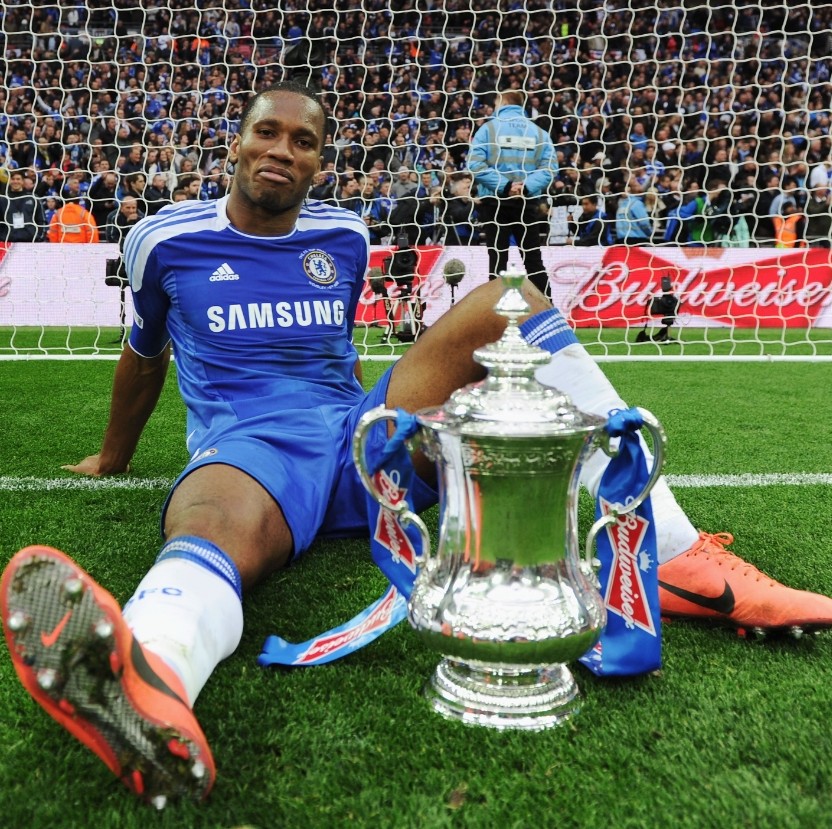
Drogba made his first international appearances for the Ivory Coast team in 2002 and by 2007 had scored 28 goals, a record for his country.
Named African Footballer of the Year in 2006 and 2009, Drogba captained the Ivory Coast to runner-up finishers in the African Cup of Nations finals in 2006 and 2012. He catapulted the national team, nicknamed “the Elephants,” into World Cup competition for the first time in 2006, and again in 2010.
Although the Elephants failed to advance past the group stage both times, their appearance in soccer’s biggest tournament with the likes of Brazil and England thrilled their devoted fans from Africa.
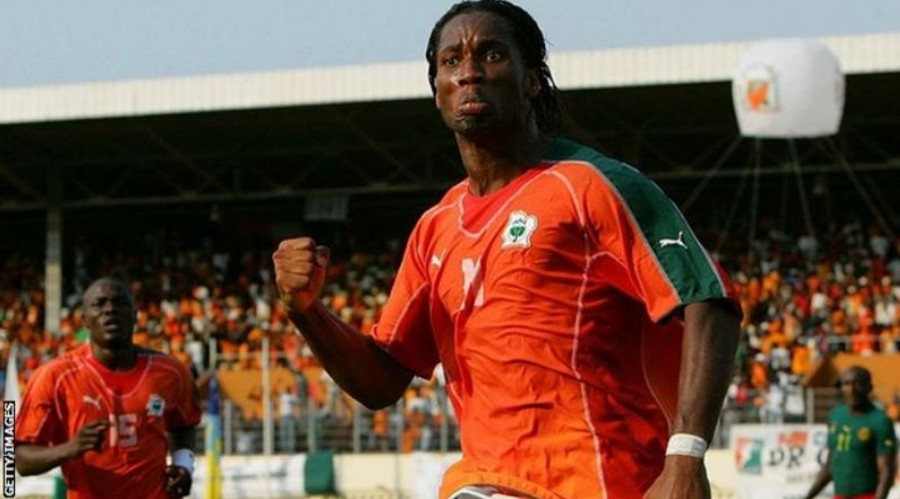
Didier Drogba was more than just a footballer. He was a leader and a king among men. That is where his most impressive feat comes to the fore.
Didier Drogba has long been adjudged to have personally had a role in ending the Ivorian Civil War, which was a war between the Muslim north of the country and the Christian south of the country.
He did so when on October 8th, 2005 after scoring multiple goals and leading Ivory Coast to World Cup qualification and knelt before the crowd to symbolize his desire for their reconciliation between the two warring factions.
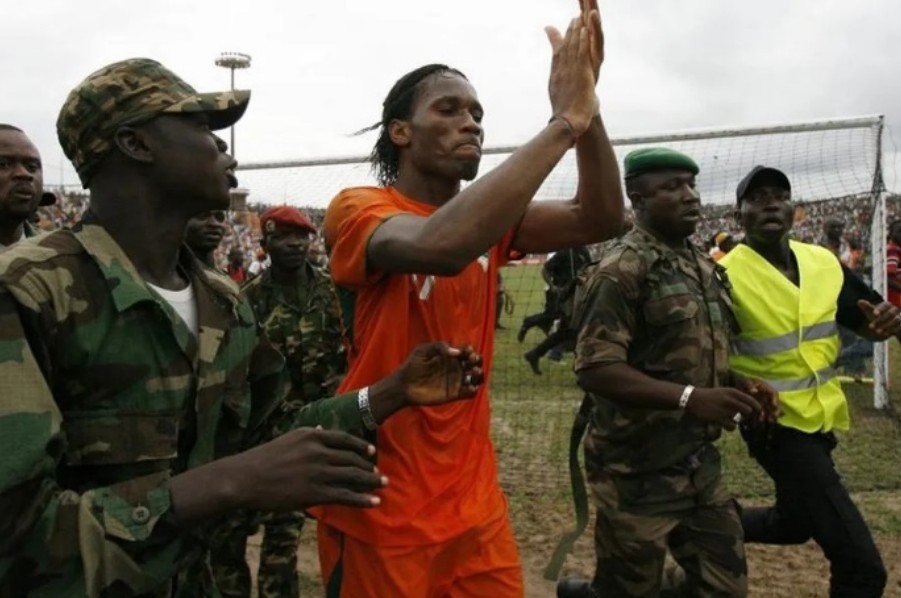
Drogba has supported Special Olympics since the 2012 Africa Regional Games, especially within his home country. His generous donations of sports equipment and personal resources provided support to athletes at the 2015 Special Olympics World Summer Games in Los Angeles.
Didier Drogba participated in the first ever Special Olympics Unified Cup at the 50th Anniversary celebrations in Chicago in July 2018.
He is a Goodwill Ambassador for United Nations Development Programme (UNDP), and in 2010 joined iconic figures such as Muhammad Ali and Michael Jordan as sportsmen to be named in the world’s 100 most influential people by Time magazine.
He together with his family do charity work. They created the Didier Drogba Foundation in 2007.
The foundation invests in medicine and education. It also deals with the construction of hospitals in the Ivory Coast and other African countries. The foundation has worked on numerous projects throughout Africa and teamed up with FIFA in 2014 in an attempt to tackle Ebola.
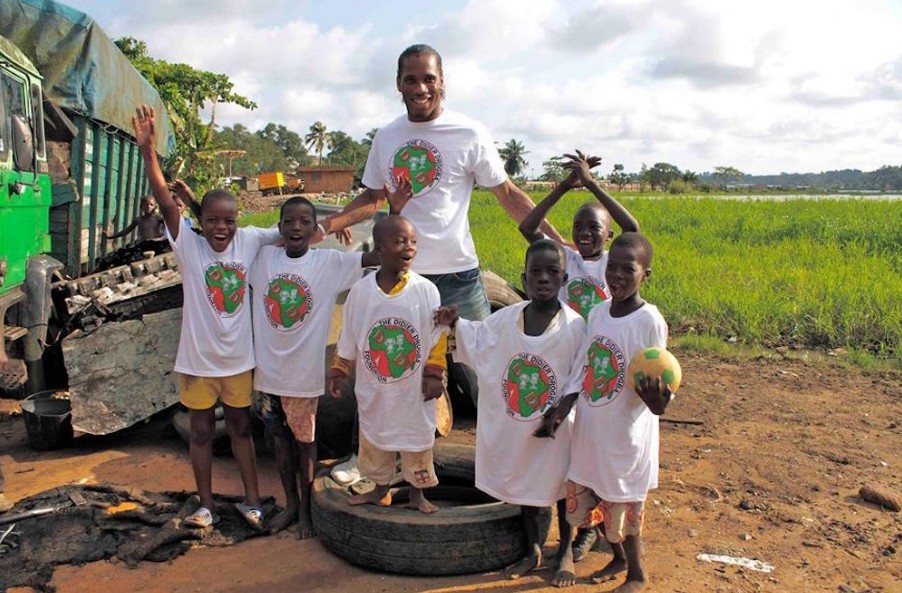
The two-time African Footballer of the Year was honored for his charitable work and his role in bringing stability to the West African country in 2021.
He was awarded an honorary degree by the University of Sciences and Technology of Africa network (Rusta) in Abidjan. He was recognized for his outstanding contributions to peace in his home country and his charitable gestures to humanity.
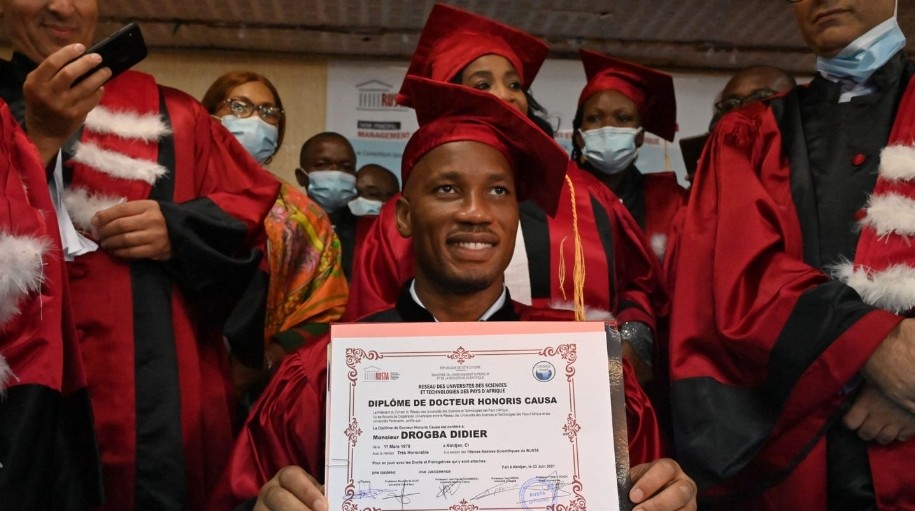
Didier Drogba reigns supreme as one of the living legends of the modern game and replacing him has been too big a task for plenty of fine men.
He is a hero to millions of football fans for his achievements throughout his glittering playing career. He is a leader – a pioneer.
He will be remembered as a player for his skill, strength and intelligence, but above all for his insatiable appetite to succeed – a trait which is just as present in his desire to help others off the field of play.
There are a lot of players with fantastic technique, but they are not leaders. They have not made the most of their careers, because they do not have a strong character, personality or courage. Drogba had it all.
